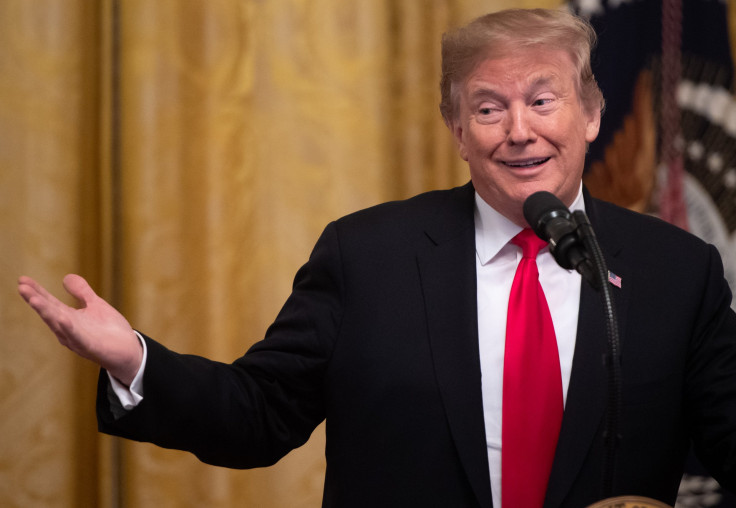Recession Fears Rising Over Continued Trade War Tension, Goldman Sachs Says

For the second time in a week, Goldman Sachs Group Inc. has said the risk of an economic recession engulfing the U.S. are increasing as president Donald Trump’s untamed trade war against China begins to spiral out of control.
On Sunday, Goldman Sachs said fears the ongoing U.S.-China trade war will trigger a recession are escalating. It again said it no longer expects a trade deal between ongoing U.S.-China before the 2020 U.S. presidential election.
Goldman Sachs shrank its fourth-quarter GDP growth forecast by 20 basis points to 1.8%, emphasizing the much greater negative impacts of recent events in the trade war.
“The drivers of this modest change are that we now include an estimate of the sentiment and uncertainty effects and that financial markets have responded notably to recent trade news,” said Jan Hatzius, Goldman Sachs’ chief U.S. economist in a note to clients.
Goldman Sachs affirmed its expectation Trump’s new round of tariffs will be implemented on Sept.1. It again said it no longer expects a trade deal before the 2020 election.
“We expect tariffs targeting the remaining $300bn of US imports from China to go into effect,” said Goldman.
President Donald Trump stunned the world on Aug. 1 when he announced a levy of 10 percent on a final $300 billion worth of Chinese imports staring Sept. 1. The Treasury Department also declared China a currency manipulator. China quickly retaliated by banning purchases of U.S. agricultural products such as soybeans.
Trump slapped the additional tariffs despite opposition from practically all of his top advisers. Only Peter Navarro, Assistant to the President, and Director of Trade and Manufacturing Policy, supported Trump in this decision, according to The New Yorker.
Goldman Sachs’ latest estimate echoes one it made Aug. 6 when it came to practically the same conclusion. In an earlier note to investors, Goldman asserted "a trade deal now looks far off" as Chinese policymakers seem more and more inclined not to make major concessions.
The Chinese also seem to be content to wait until after the 2020 U.S. presidential election for an end to the trade war under a Democrat president. Trump's new 10 percent levy he announced July 31 also figured prominently in Goldman's downbeat assessment.
“While we had previously assumed that President Trump would see making a deal as more advantageous to his 2020 re-election prospects, we are now less confident that this is his view,” said Hatzius.
Goldman said China’s decision to halt purchases of U.S. agricultural goods and its decision to allow the yuan to breach the psychologically-important level of RMB1.00 to $1.00 “added up to a swift and meaningful response” to Trump’s latest tariff threat.
© Copyright IBTimes 2024. All rights reserved.



















